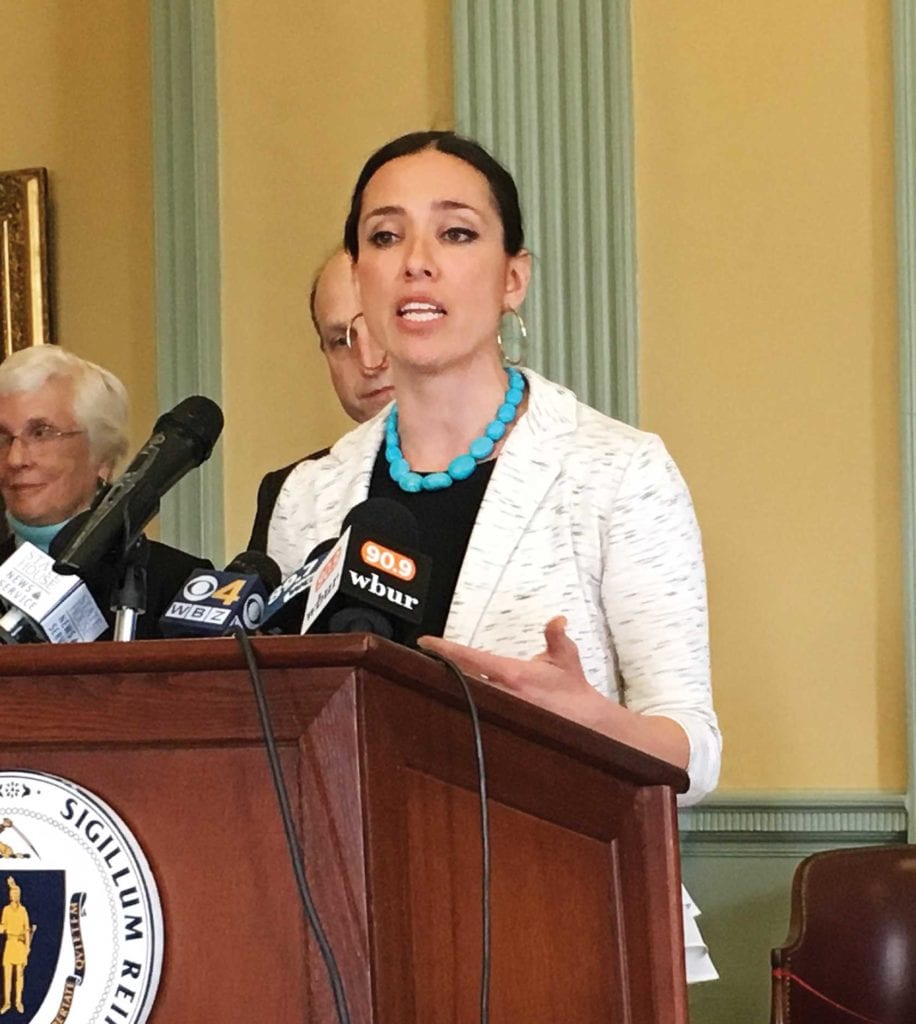Legislators convene committee on race equity
Reparations, housing inequality among issues group will tackle

Community members on Monday advocated for racial justice across the Commonwealth to the chairs of the new Joint Committee on Racial Equity and Civil Rights, a legislative group tasked with brainstorming policy for impacting communities.
The two chairs, Rep. Bud Williams and Sen. Sonia-Chang Diaz, asked those who gave testimony for their thoughts on reparations, the housing crisis, correctional injustices and recovery from the pandemic.
Brandy Fluker Oakley, representing the 12th Suffolk District after her primary win in September, noted that the hearing broke the record for the number of Black and brown people testifying at the State House.
“Because of the amount of people that showed up and exercised their voice in ways that they had not necessarily done before, I think it’s a testament to the need for the committee,” Fluker Oakley told the Banner.
The newly-added member of the Massachusetts Black and Latino Legislative Caucus said she wants to focus on all the federal money coming into the Commonwealth via federal COVID-19 recovery aid packages, such as the American Rescue Plan.
“I think there’s a really unique opportunity for this committee, and in conjunction with the [Caucus] to really put pressure on the state powers, the Legislature and the governor’s office to make sure that those dollars are used equitably,” Fluker Oakley said.
She would also like to take such hearings out into the community rather than just have people attend virtually, she said.
Tammy Tai, deputy director of the nonprofit King Boston, pushed her organization’s legislative agenda, including reparations for Black people.
“We think the time for reparations is now, in the wake of last summer’s racial reckoning. We are seeing a sea change around public sentiment,” Tai said.
Recently there has been a wave of developments at every legislative level concerning reparations.
Rep. Liz Miranda and Sen. Nick Collins introduced state legislation last session to establish a special commission on race and reconciliation. A federal bill has been introduced, calling for the study of slavery and proposals for reparation payments. The Boston City Council also passed an order for a hearing on reparations.
“King Boston has been facilitating a statewide conversation around reparations,” Tai said. “Along with our partner UMass Boston, we’ve been participating in a national higher education reparations engagement task force.”
The task force consists of scholars and activists around the community creating online resources on the United States’ history of racism.
Civil rights activists at Monday’s hearing were also concerned with the rights of incarcerated people across Massachusetts. A representative from the nonprofit Inquilinos Boricuas en Acción Boston (IBA Boston) asked that the committee address several injustices affecting people of color behind bars.
Elizabeth Matos, executive director of Prisoners’ Legal Services of Massachusetts, said that there are a number of bills that could address the racial inequities fueled by incarceration.
Concurrent House and Senate bills are aimed at eliminating fees that incarcerated persons have to pay to contact their loved ones by phone or email.
“Simply put, families of those incarcerated should not be a source of revenue for corrections,” Matos said in her testimony. “In one year, Massachusetts residents paid about $24 million in revenue to prison phone providers.”
Matos also brought up a visitation bill and provisions to stop the spread of COVID-19 in jails, as well as two bills addressing use of force that Matos wants the committee to review.
“Senate Bill 1541 and House Bill 2480 also address excessive use of force behind the wall, which was touched upon during the police [reform] bill but really needs a lot more attention,” she said.
The impact of the testimony was not lost on Segun Idowu, president and CEO of the Black Economic Council of Massachusetts. He testified on the importance of wage equity and forming a public bank, two of BECMA’s top legislative priorities.
“I think what Rep. Williams and Senator Chang-Diaz understand is that all we ever get is talk,” Idowu told the Banner. “So the important mandate of this committee is that we actually get action.”
Not only should the new joint committee use this feedback to create legislation, Idowu said, but they should also review all the legislation in this cycle to make sure it is equitable.






